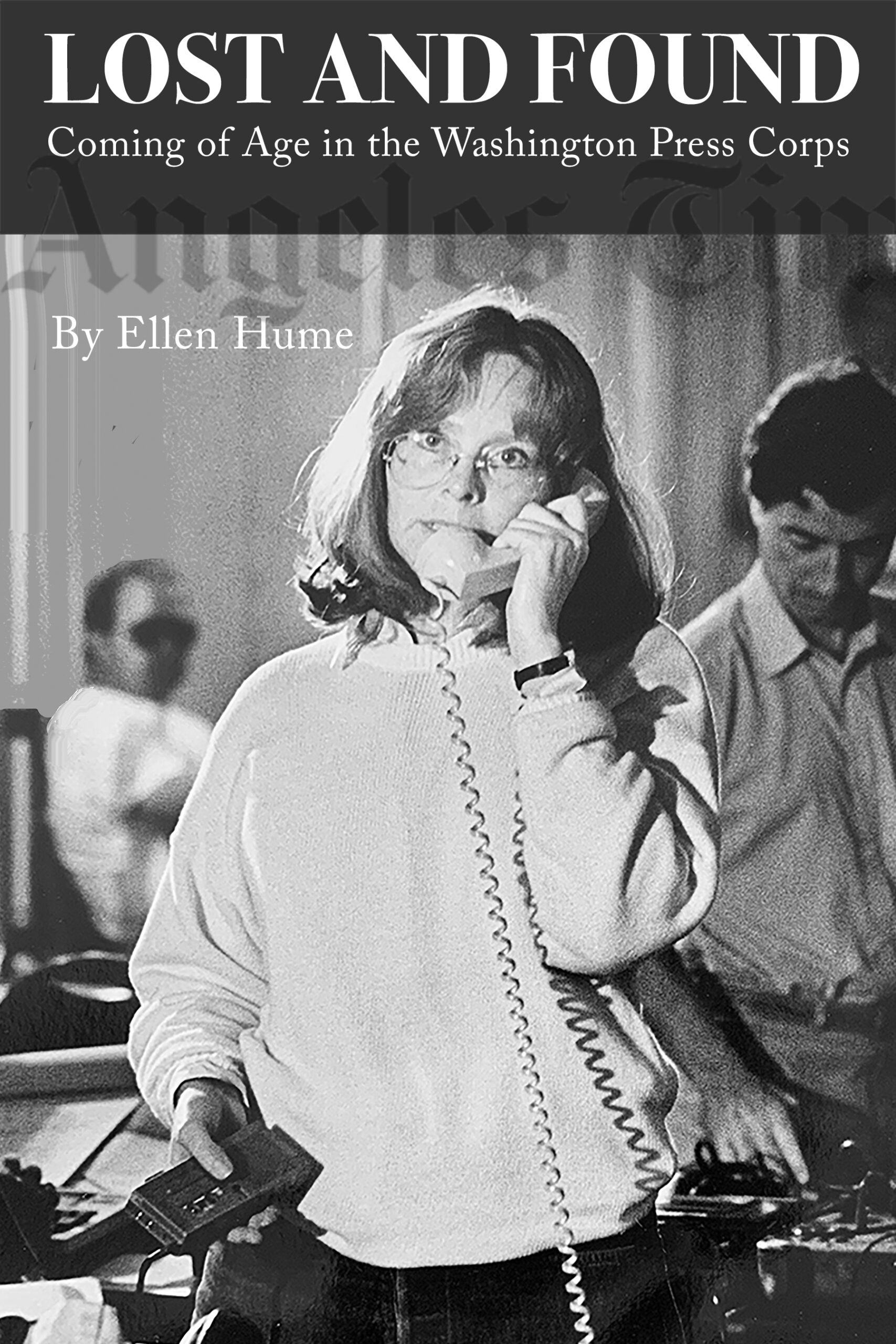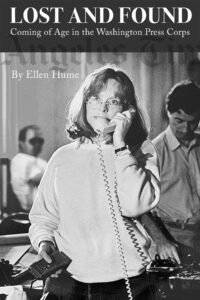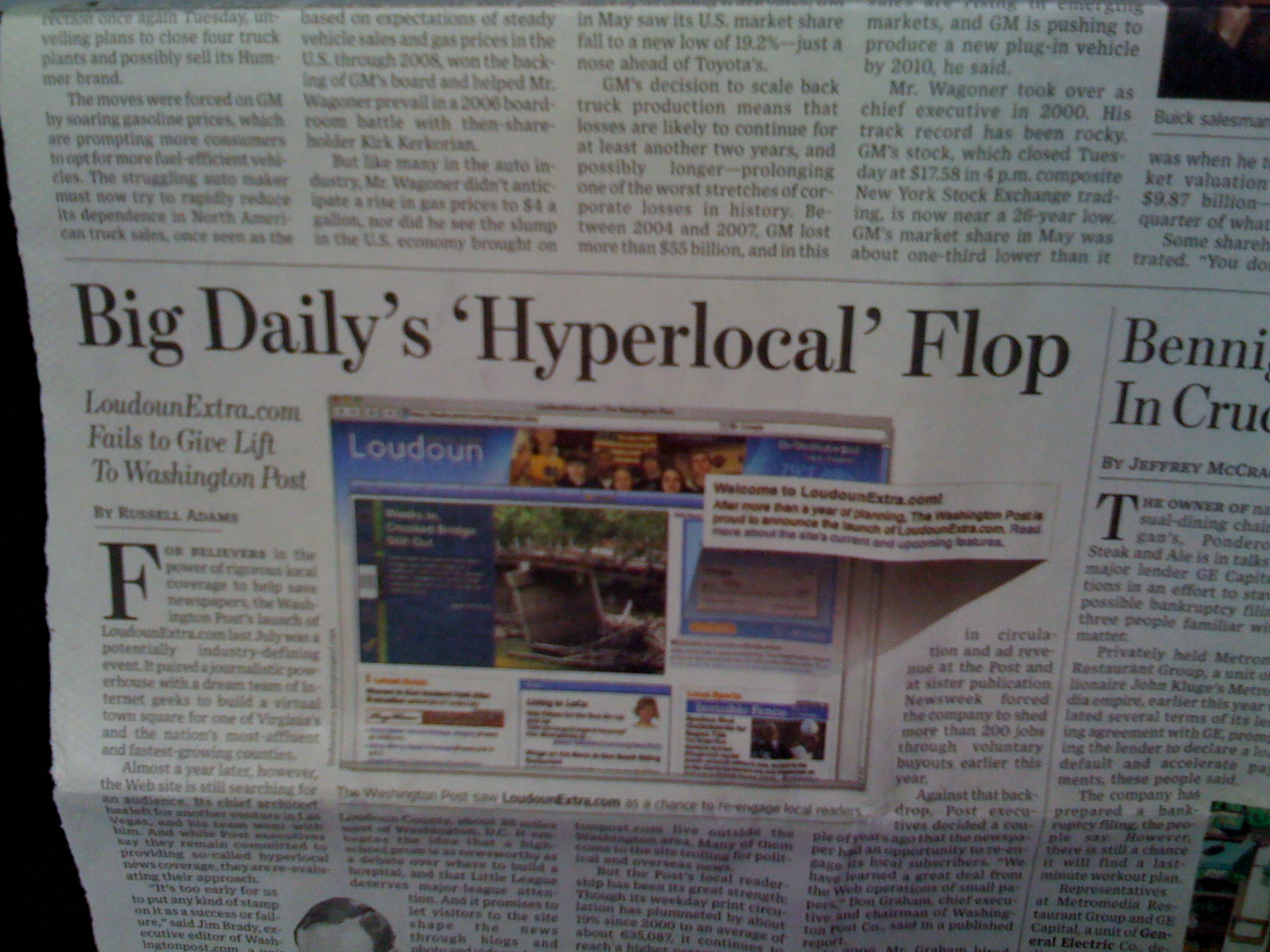
Fun and Games in the Washington Press Corps

You can order it from your independent bookstore, from Amazon.com, or from Bookbaby…


You can order it from your independent bookstore, from Amazon.com, or from Bookbaby…

Reading any newspaper is pretty much a two-dimensional, impersonal, top-down, one-way, and often stupefying experience. News reports are infuriatingly self-referential and incomplete. If they stir us up they don’t give us any place to go. Is this civic engagement? The endless stream of revelations and problems, celebrities and disasters, seems disconnected from our own personal choices and public solutions. Too often, newspaper readers feel like “passengers in the back seat of the car, howling at the driver,” as MIT Prof. William Uricchio once put it.
Now we, the public, can be the drivers in a three-D world, with enticing participatory media that are upending power relationships, changing the links between user emotion and action, creating and engaging communities, providing platforms for people to do things for each other, and allowing a new sense of public space. We get more information than we can use, including original documents and expert opinions. We can all be prod-users: publishing our news to the world through Twitter, Facebook, YouTube and a wealth of cellphone tools that allow us to collect, geotrack, prioritize, keep and spread stories, pictures, videos and images.
These tools enable people not just to have more fun, but to contribute to political campaigns, bear witness to official misconduct, arrange meet-ups to deal with local problems, crunch and visualize data, and write rough drafts of history for public resources like Wikipedia. If watching television disengaged people from community, as Harvard political scientist Robert Putnam asserted in his famous “Bowling Alone” study, new media technologies are drawing us together with extraordinary results.
We certainly can give up the ink and paper format. But we are suicidal idiots if we give up the professional service that newspapers provide. Newspaper journalism is the foundation of the watchdog news chain. The best newspaper journalists have our back and work on our behalf to sort out what’s true and publicly relevant, whether they or their advertisers like it or not. That is what they mean by “objectivity.”
Good independent journalism is hard to do. It costs money. It also requires a popular culture that supports unpopular questions and answers. It asks citizens to live in the real world and care about what is factually true. It requires a support structure based on something other than the voyeur pornography of violence, sex and celebrity.
At their best, newspapers provide what Alex Jones calls the “iron core” of news, the honest, time-consuming effort by paid professionals to hold the powerful accountable. Television and radio newscasts, Google news, Jon Stewart, Rush Limbaugh, and the people who run the world still depend to a large extent on the flow of facts and assertions vetted, organized and prioritized by newspaper journalists. Internet advertising without subscription fees cannot finance “iron core” journalism. So newspapers, even as they adapt to the web and cell phone platforms, are going bankrupt and journalists are losing their jobs.
Technology is not the sole culprit. Neither journalists nor the public have adequately differentiated good journalism from bad, nor defended newspapers when they have been under attack from self-interested ideologues. It has been increasingly hard for news organizations to resist offering simply whatever the public wants, instead of fighting for what the attentive citizen needs to know. Journalists too often have abandoned the qualities that made them both controversial and essential.
For new business models to work, journalists need to provide news services of unique value and promote their credo as effectively as the critics have attacked it. Media literacy training should be part of basic education for everyone, as power and responsibility for evaluating the news moves from the elite to the street. Technology alone didn’t destroy journalism, but a thoughtful use of digital and participatory media can help save it. We need to build and organize fan groups for real journalism and turn that support into sustenance.
The smartest digital entrepreneurs understand the continued importance of good journalism. Despite our information overload, vital news and information is deliberately hidden—as prize-winning newspaper and magazine exposes of corruption, torture, spying on citizens, and other issues, continue to teach us. We need someone with clout to hold propaganda creators accountable, while being accountable themselves. We know where to find these journalists if they mess up. In contrast, we can’t expect the evanescent and sometimes anonymous virtual digital folks who volunteer their pieces of information, to provide the consistent, influential flow of relevant, verified news that people require every day in a democracy.
We need a common picture of the real world that we cohabit today, if we are going to work together to build the future. Without professional journalists in the mix, we are tempted to travel only the streets we already know, mirroring ourselves with our media choices, rather than facing unwelcome facts. That is why we need to save newspapers—or at least the journalism they can provide. They help us demand the best from the powerful, and from ourselves.
Originally published in Newsday, December 2009.